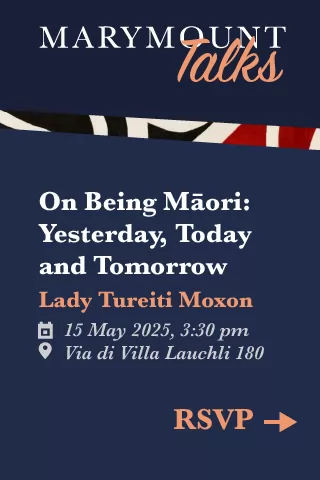Cinema Paradiso is more than just a film; it is a celebration of cinema itself.
The movie, originally released as Nuovo Cinema Paradiso, is a 1988 Italian drama film written and directed by Giuseppe Tornatore.
This cinematic masterpiece captures the essence of nostalgia, love, and the magic of cinema through its compelling storytelling and beautiful visuals. Set in a small Sicilian village, the film weaves a poignant tale that has resonated with audiences worldwide, earning it numerous accolades, including the Academy Award for Best Foreign Language Film.
Plot Summary
The film opens with Salvatore Di Vita, a successful film director living in Rome, receiving news of the death of Alfredo, the projectionist of his childhood. This news prompts Salvatore, known as Toto in his youth, to reminisce about his past. The narrative then transports viewers back to his childhood in post-World War II Italy.
Young Toto is a mischievous and curious boy who finds solace and excitement in the local movie theater, the Cinema Paradiso. The theater becomes his refuge, a place where he can escape the harsh realities of life. It is here that he meets Alfredo, the projectionist who becomes a father figure to him. Alfredo teaches Toto about the technical and artistic aspects of filmmaking, nurturing his passion for cinema.
The heart of the story revolves around the deep bond between Toto and Alfredo. Despite his initial reluctance, Alfredo allows Toto to help him in the projection booth, sharing his knowledge and love for movies. This mentorship shapes Toto's future, fueling his dreams of becoming a filmmaker. The relationship between the two characters is depicted with warmth and authenticity, highlighting the themes of friendship, mentorship, and the passage of time.
Themes and Symbolism
Cinema Paradiso is rich with themes that explore the human condition. One of the central themes is the transformative power of cinema. For Toto, movies are not just entertainment; they are a source of inspiration and hope. The theater represents a microcosm of life, where joys, sorrows, and dreams are projected on the screen. The film emphasizes how cinema can influence and shape our lives, providing an escape and a means of understanding the world.
Nostalgia is another prominent theme in the film. Through Toto's memories, viewers are transported back to a bygone era, evoking a sense of longing for simpler times. The film beautifully captures the essence of childhood and the bittersweet nature of growing up. The village, the theater, and the characters all contribute to a nostalgic atmosphere that resonates deeply with audiences.
The film also explores the idea of change and loss. As Toto grows older, the world around him changes. The once-thriving Cinema Paradiso falls into disrepair, symbolizing the inevitable passage of time and the loss of innocence. Alfredo's death marks the end of an era, prompting Toto to confront his past and the choices he has made.
Cinematic Techniques
Giuseppe Tornatore's direction is masterful, blending heartfelt storytelling with stunning visuals. The film's cinematography, by Blasco Giurato, captures the beauty of Sicily and the charm of its small villages. The use of light and shadow, combined with the evocative landscapes, creates a visually captivating experience.
The film's score, composed by the legendary Ennio Morricone, is another standout element. The music enhances the emotional depth of the story, with its haunting melodies and poignant themes. Morricone's score is integral to the film's atmosphere, adding a layer of emotion that complements the narrative.
Tornatore also employs various cinematic techniques to enhance the storytelling. Flashbacks are used effectively to weave between the past and present, providing a comprehensive view of Toto's life. The scenes in the projection booth, with their intricate details and close-ups, highlight the technical aspects of filmmaking, emphasizing the magic of cinema.
Impact and Legacy
Cinema Paradiso has had a profound impact on audiences and critics alike. Upon its release, it received widespread acclaim and won numerous awards, including the Grand Prix at the Cannes Film Festival and the Academy Award for Best Foreign Language Film. Its success helped revive interest in Italian cinema on the global stage.
The film's legacy continues to endure, with its themes and storytelling resonating with new generations of viewers. Cinema Paradiso is often cited as one of the greatest films of all time, celebrated for its emotional depth, visual beauty, and homage to the art of cinema. It has inspired countless filmmakers and remains a touchstone for those who appreciate the power of storytelling.
Personal Reflections
For many viewers, Cinema Paradiso holds a special place in their hearts. The film's portrayal of childhood, friendship, and the love for cinema strikes a universal chord. It reminds us of the simple pleasures of life and the importance of cherishing our memories. The relationship between Toto and Alfredo, in particular, resonates with those who have had mentors who shaped their lives and aspirations.
The film's exploration of nostalgia and loss is particularly poignant. It encourages viewers to reflect on their own past, the changes they have witnessed, and the choices they have made. Cinema Paradiso is a reminder of the passage of time and the importance of embracing both the joys and sorrows of life.
Cinema Paradiso is more than just a film; it is a celebration of cinema itself. Through its heartfelt narrative, stunning visuals, and unforgettable music, the film captures the essence of what makes movies so special. It is a timeless story of love, loss, and the magic of the silver screen, resonating with audiences across generations.
As we watch Toto's journey from a curious boy to a successful filmmaker, we are reminded of the power of dreams and the impact of those who guide us along the way. Cinema Paradiso is a testament to the enduring power of cinema and its ability to touch our hearts and souls.
Latest news
Latest Whats'on
Latest Classifieds
Latest Yellow Pages
STAY CONNECTED
Latest What's on
Latest classifieds
Mattress and mattress cover washable 200x140 cm
Equestrian jacket woman's size 42


















